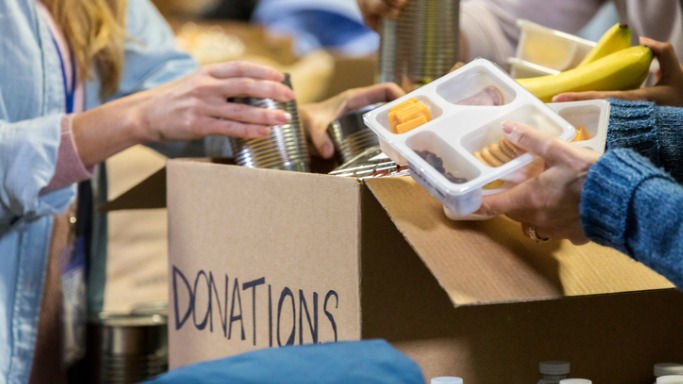President Ronald Reagan famously distributed 60 million pounds of surplus cheese to poor Americans in 1981. Four decades later, middle-class moms are taking advantage of a welfare loophole to get their own government cheese.
In August, the U.S. Department of Agriculture began allowing schools to distribute food without verifying that a recipient has a child enrolled in public school or eligible for free or subsidized meals. That means anyone can roll up to a food-distribution site to get a free bag of food.
On Facebook, a mom in the wealthy Virginia suburb of Washington where I live recently posted pictures of an elegant cheese board she’d created with items she snagged from the city’s food giveaway. She could afford to buy the cheese, dried and fresh fruits, vegetables, whole-grain muffins, breakfast bars, dip, yogurt, crackers and bread, all displayed on a wood platter.
Reactions were glowing. In the comment section, two moms swapped tips on which city food-distribution site had the best products.
The mom who posted the photo cloaked herself in virtue. “The city is encouraging every family to pick up their free meals . . . to maintain funding, access, and to reduce stigma,” she wrote. “Picking up your free lunch might mean a job kept, a food item not thrown away, and a child with food in their fridge.”
Yet shouldn’t there be a stigma associated with a financially secure person who lives in a tony neighborhood obtaining food at taxpayer expense?
True, there’s a stigma associated with taking government food, which may prevent some needy families from partaking. Yet there’s a better way to tackle that problem. Cities could encourage those in need to apply for Pandemic Electronic Benefits Transfer benefits, which provide what looks like a credit card that allows them to shop at regular grocery stores—stigma-free.
That would also relieve poor families from having to wait in line for food alongside well-heeled, virtue-signaling moms.

